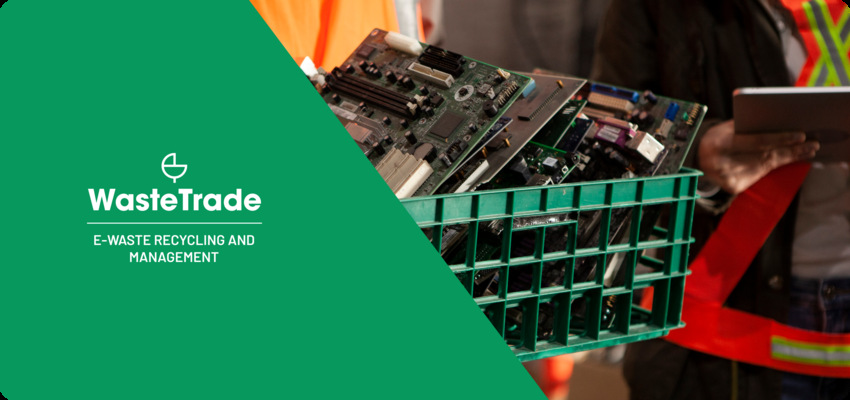电子废物回收和管理
Author: 乔治-基尔南 / Posted: 19th 4 月 2024

Welcome to WasteTrade, the premier global waste marketplace connecting buyers and sellers of waste materials. This article delves into the crucial topic of E-Waste Recycling and Management. As technology evolves at a rapid pace, electronic devices become obsolete quickly, leading to a significant increase in electronic waste, commonly known as e-waste. We will explore the importance of electronic waste recycling, various e-waste disposal methods, and the significance of recycling electronics for a sustainable future. Join us as we uncover the key aspects of e-waste management to promote a greener and cleaner environment.
E 废物

E-waste is a pressing environmental issue both in the UK and globally. The rapid turnover of electronic devices results in a growing volume of discarded gadgets. Improper disposal of e-waste can lead to significant environmental and health risks due to the hazardous substances they contain. Lead, mercury, and cadmium are among the toxic materials that can contaminate soil and water if not properly managed.
Addressing the e-waste problem involves promoting recycling initiatives and raising public awareness about sustainable e-waste management practices. Recycling not only recovers valuable materials like gold, silver, and copper but also reduces the need for raw materials, conserving natural resources. Government regulations, such as the WEEE Directive, aim to ensure that e-waste is responsibly recycled and disposed of, holding both producers and consumers accountable. By encouraging proper e-waste disposal, we can contribute to a cleaner environment and a more sustainable future.
电子废物回收

Recycling electronic waste is essential in today’s tech-driven world. With the rapid pace of technological advancement, electronic devices are being replaced more frequently, leading to a surge in e-waste. Properly recycling electronic waste helps mitigate environmental damage caused by improper disposal. Valuable materials like copper, gold, and silver can be recovered and reused, reducing the need for mining new resources.
Moreover, recycling e-waste helps address pollution caused by hazardous materials found in electronics. These devices often contain toxic substances such as lead, mercury, and cadmium, which can contaminate soil and water if not properly disposed of. Recycling allows for the safe extraction and management of these hazardous materials, preventing environmental contamination. Promoting electronic waste recycling fosters a more sustainable and environmentally conscious society.
电子废物处置方法
Electronic waste, or e-waste, presents a significant environmental challenge as the use of electronic devices continues to grow. Effective disposal methods are crucial to mitigate the harmful impacts on the environment and human health. One primary method is recycling, which allows for the recovery of valuable materials like gold, silver, and copper, reducing the need for new mining operations and conserving energy.
Refurbishing and reusing electronic devices is another key method. This approach extends the lifespan of electronics by repairing and upgrading them. Refurbished devices can be donated or sold, providing affordable technology to those in need while reducing the amount of e-waste. Adopting these methods contributes to a more sustainable approach to e-waste management, protecting the environment for future generations.
回收电子产品
In the United Kingdom, the importance of recycling electronics has grown with the rapid advancement of technology and the resulting increase in e-waste. Proper disposal not only prevents the release of harmful substances into the environment but also allows for the recovery of valuable materials for use in new products. The UK government has implemented initiatives and regulations, such as the Waste Electrical and Electronic Equipment (WEEE) Directive, to promote recycling and minimise the environmental impact of e-waste.
Households and businesses are encouraged to participate in recycling schemes, which include collection services and drop-off points for old electronics. Specialist recycling companies also ensure that valuable components are recovered and hazardous materials are safely disposed of. By recycling electronics, individuals and businesses in the UK can conserve resources, reduce pollution, and contribute to a sustainable future.
